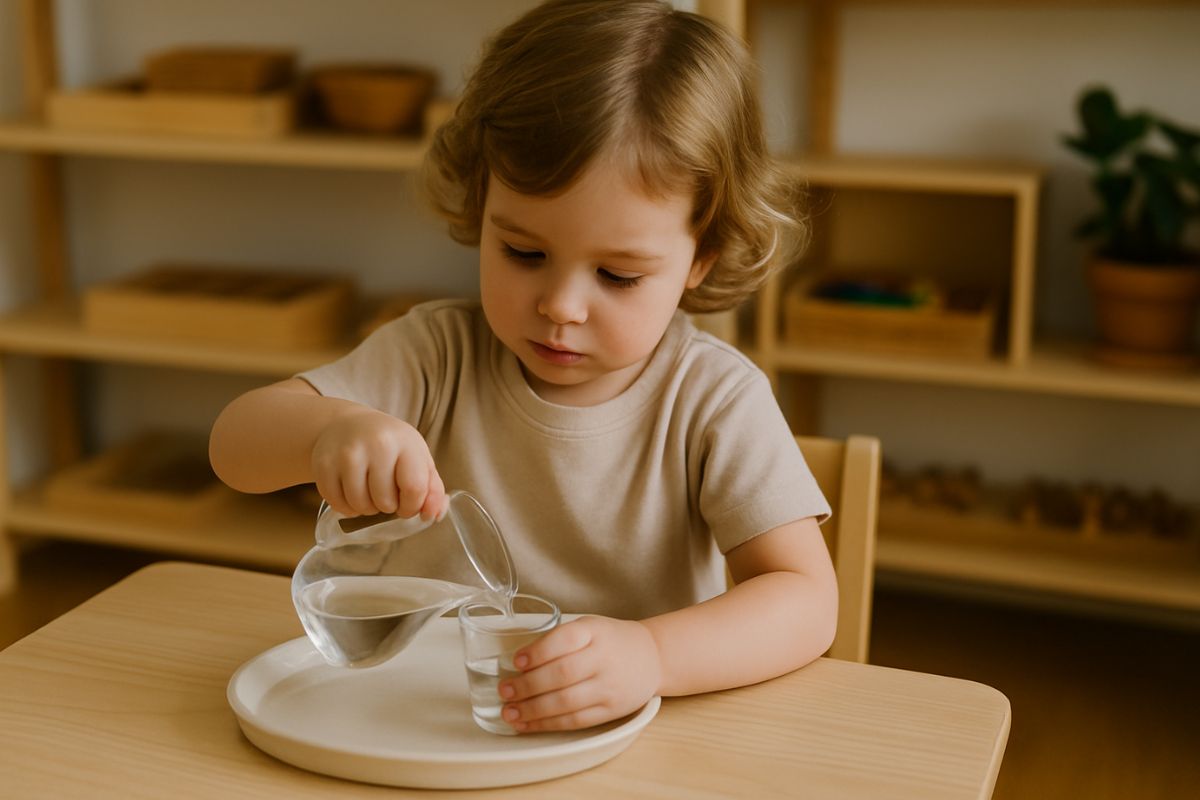In many traditional classrooms, a child’s success is judged by the final result. A perfect craft. A correct worksheet. A clean, finished project. But in Montessori education, what matters most is how the child got there. It’s not about the outcome. It’s about the journey. Focusing on the process helps […]
Read More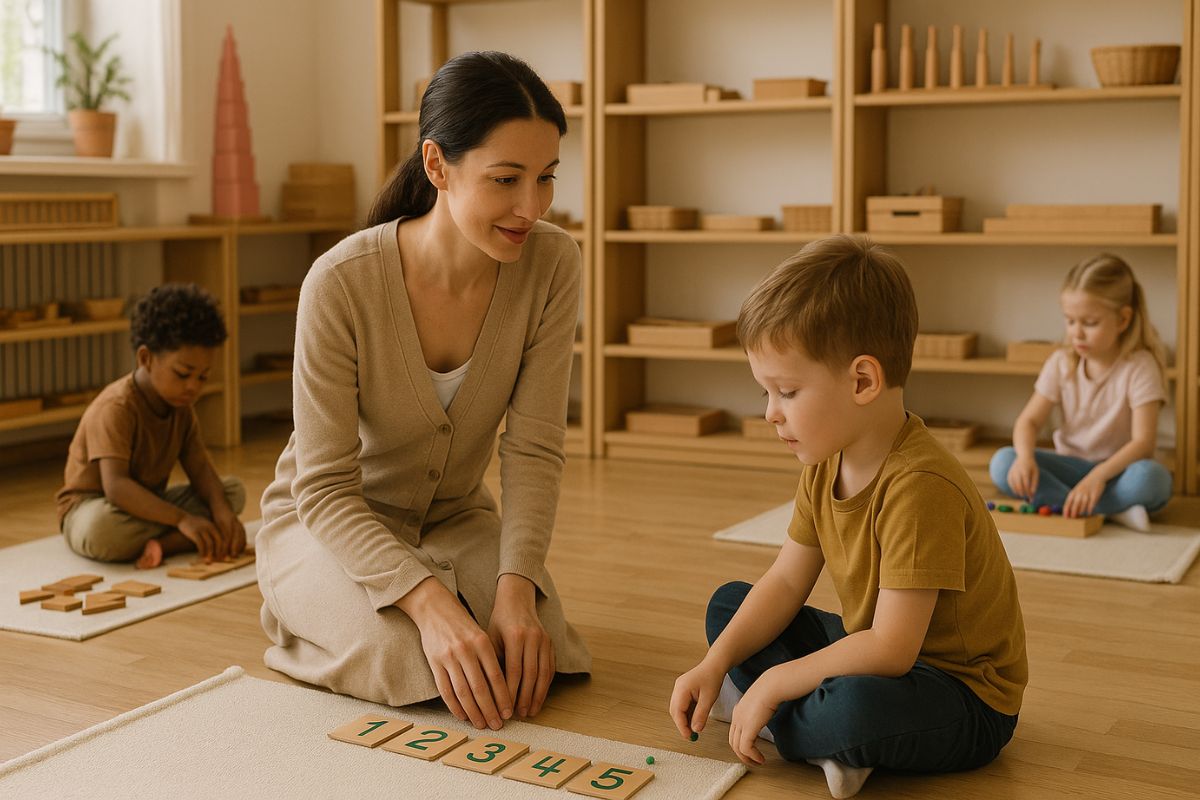
How Montessori Teachers Guide
In a Montessori classroom, the teacher doesn’t stand in front of the room giving lectures. Instead, they move quietly through the space, observing, offering help when needed, and guiding children toward purposeful work. Their role is gentle but deeply intentional. Montessori teachers are trained to watch closely, listen carefully, and […]
Read More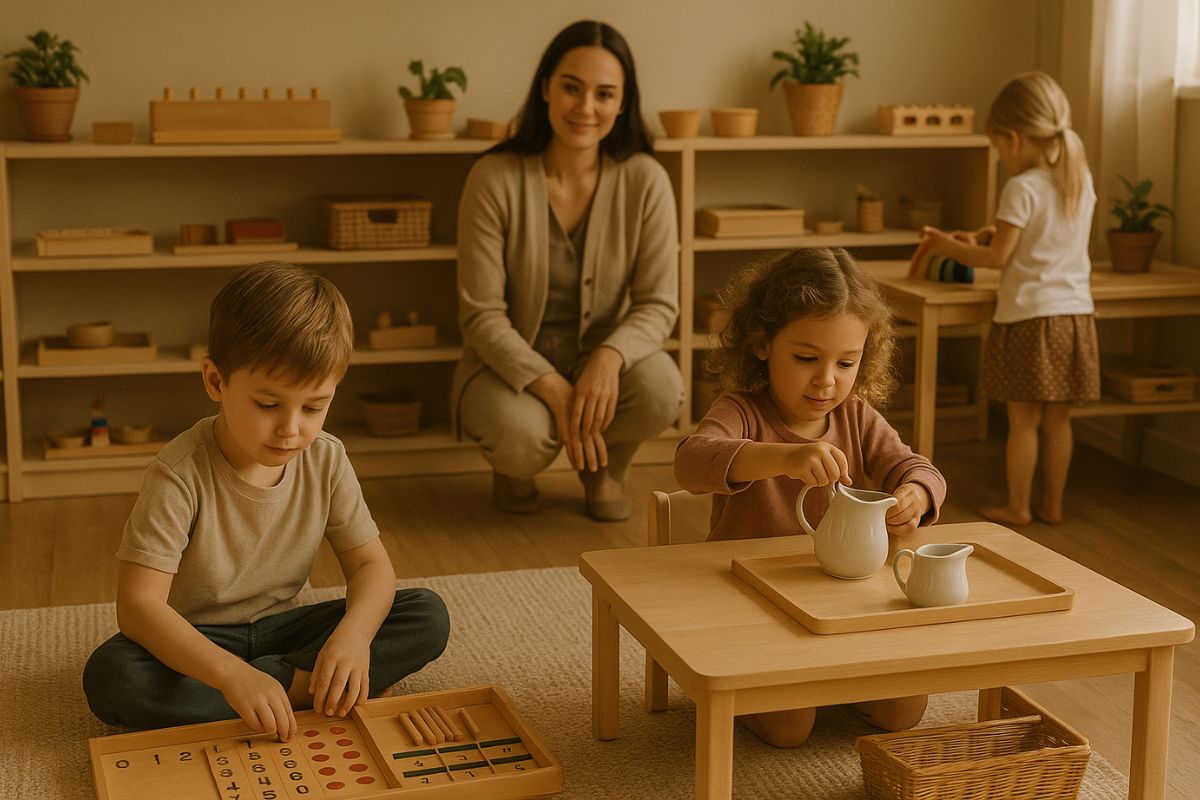
Hands-On Learning in Montessori
Children learn best by doing. That idea is at the heart of Montessori education. Instead of sitting still and listening all day, children in Montessori classrooms are invited to touch, move, build, and explore. Their hands are not idle—they are tools for thinking. Hands-on learning connects the body and the […]
Read More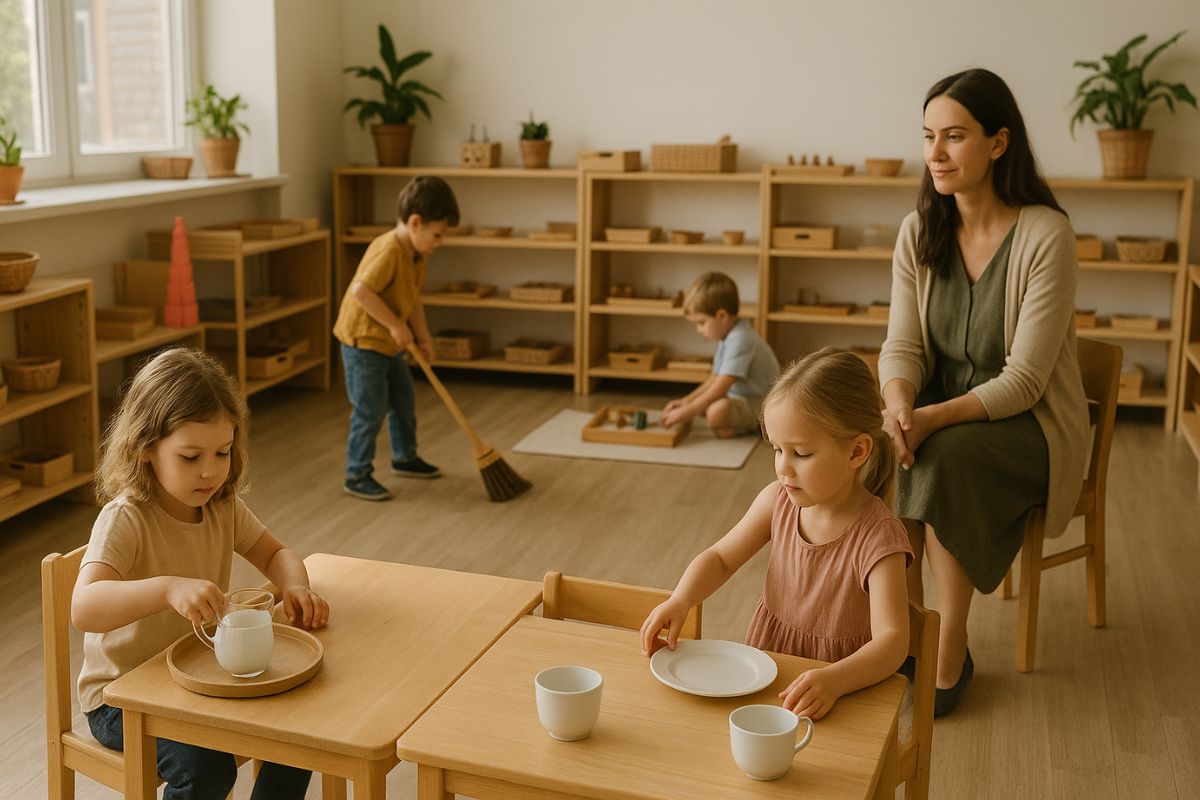
Montessori Approach to Discipline
Discipline is often misunderstood. Many think it means strict rules, punishments, or control. But in a Montessori setting, discipline looks very different. It’s not something imposed from the outside. It grows from within the child—developed through respect, choice, and self-awareness. The Montessori approach believes that children are capable of self-control […]
Read More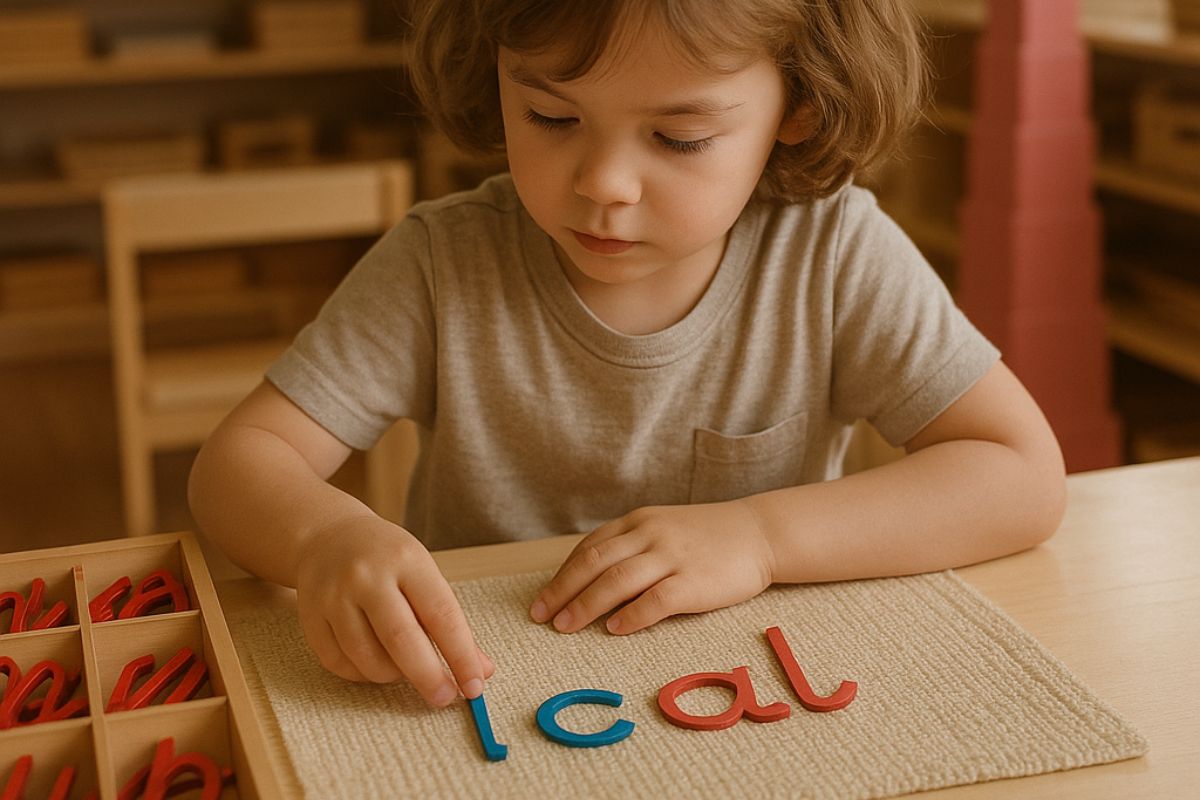
Self-Correction in Montessori Learning
One of the most powerful lessons in a Montessori classroom comes from what the child learns after making a mistake. In this environment, errors are not punished or fixed by the teacher right away. Instead, children are encouraged to notice mistakes, reflect, and try again. This process is called self-correction—and […]
Read More